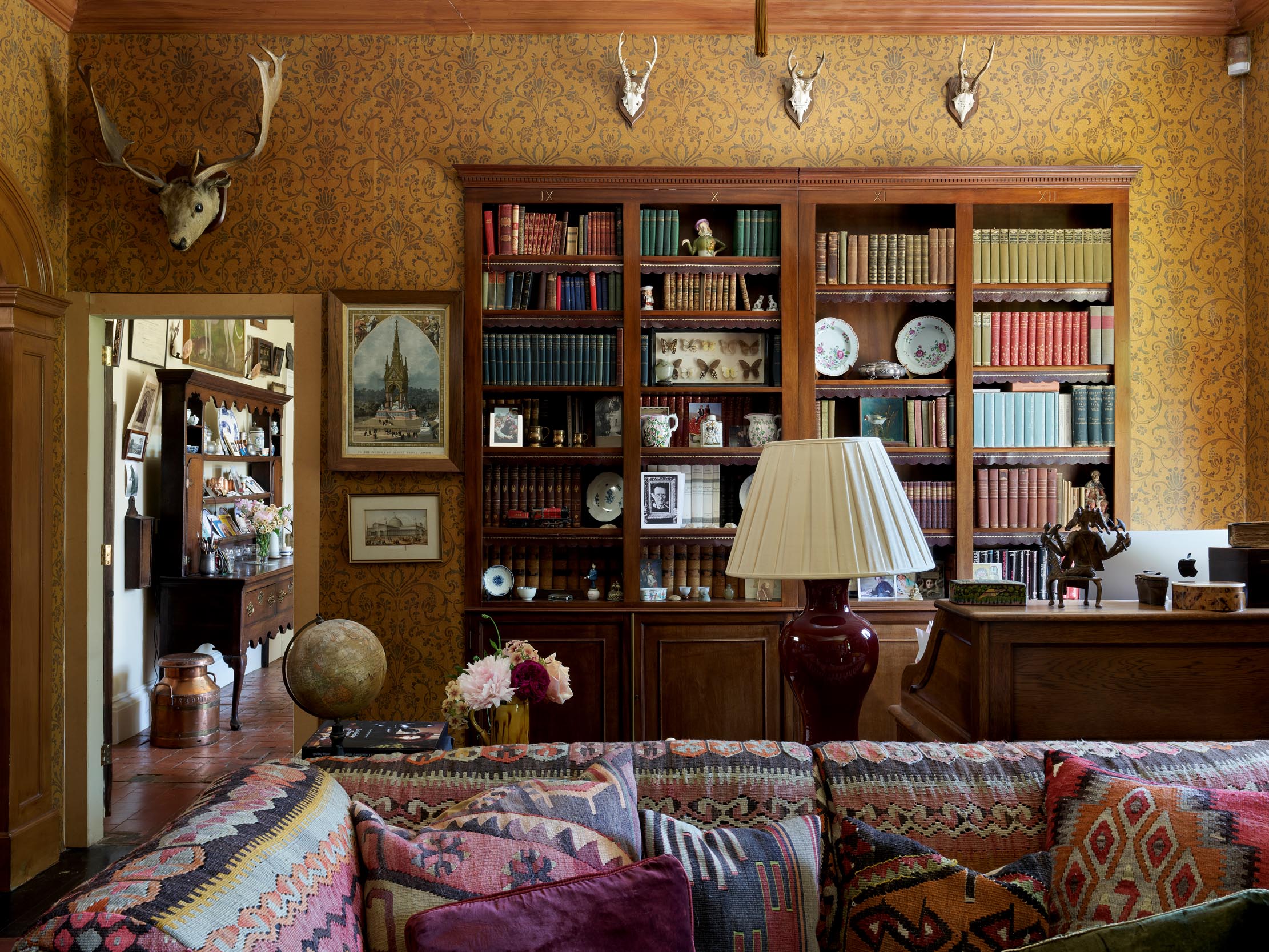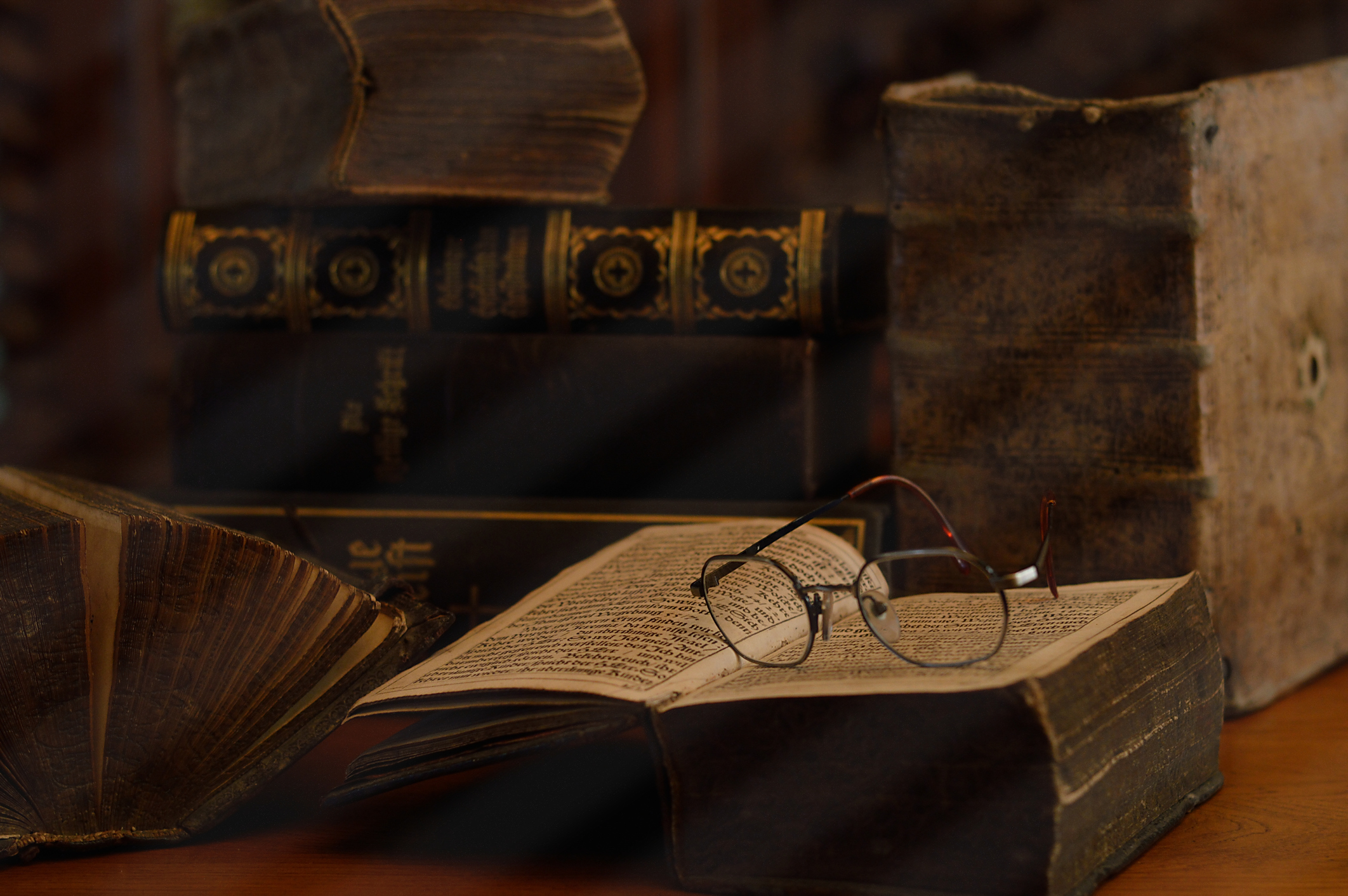Jonathan Self: What I found out when I finally read a book I'd been meaning to read for 40 years
The author finally plucked up the courage to read Montaigne — here's what he made of it.


Exquisite houses, the beauty of Nature, and how to get the most from your life, straight to your inbox.
You are now subscribed
Your newsletter sign-up was successful
Although I have never noticed it before, my copy of P. G. Wodehouse’s The Luck of the Bodkins, a book I have read perhaps 40 times, happens to have exactly the same blue cloth cover as my copy of Les Essais de Montaigne, a book I have been meaning to read for some 40 years (like Saint Augustine, I have frequently prayed: ‘Oh Lord, let me study the great classics, but just not yet’).
The similarity was brought to my attention forcibly this week at the beginning of a long and solitary train journey. Opening the only book I had brought with me, I was horrified to read not, as I had expected: ‘Into the face of the young man who sat on the terrace of the Hotel Magnifique at Cannes there had crept a look of furtive shame, the shifty hangdog look which announces that an Englishman is about to talk French’, but some actual French: ‘La plus commune façon d’amollir les coeurs de ceux qu’on a offensez, lors qu’ayant la vengeance en main, ils nous tiennent à leur mercy, c’est de les esmouvoir par submission à commiseration et à pitié.’
Still, we Selfs can take le rugueux avec le lisse and I spent a tolerably happy few hours trying to get to grips with the man attributed with inventing the essay, a word that comes from ‘to try’ in French — in the sense of an experimental effort. Montaigne experimented with a wide range of subjects, from cannibalism to why people wear clothes, and from the inconvenience of greatness (chance would be a fine thing) to thumbs. He could be witty, too. My regular bursts of laughter at his text — ‘It is no hard matter to get children; but after they are born, then begins the trouble’; ‘There is little less trouble in governing a private family than a whole kingdom’; ‘Doctors are lucky: the sun shines on their successes and the earth hides their failures’ — caused other passengers to stare.
Where I found him most insightful, however, was on the topic of conversation. Montaigne maintained that ‘the most fruitful and natural play of the mind is in conversation’ and I am inclined to agree with him. One of my greatest pleasures in life is conversing, especially with Rose, my wife. It is our habit to go out for lunch or a drink together several times a week and, as we chat away, we often observe with sadness and, I must confess, a certain complacency, couples sitting in stony silence or, worse, ignoring each other as they scroll on their telephones.
Socialising again after several years of barely seeing a soul (first because of my pesky health, then because of the pesky pandemic), I have been struck by how few people seem to understand the art of conversation, by which I mean showing an interest in others, listening to what they say, raising subjects likely to appeal and exchanging ideas. An art in which it is acceptable to argue — ‘There is,’ as Montaigne himself famously said, ‘no conversation more boring than the one where everybody agrees’ — but not to become irate. Indeed, my impression of almost everyone I have met recently is that they are predominantly concerned with themselves and their opinions are largely fixed.
Had I had a conversable companion for my trip, we could have discussed this and whatever else we fancied, surely with the approval of the great philosopher. As he said: ‘Studying books has a languid feeble motion, whereas conversation provides teaching and exercise all at once.’

Jonathan Self: Don't measure your life in years — measure it in dogs
Jonathan Self celebrates a birthday for a beloved dog.
Exquisite houses, the beauty of Nature, and how to get the most from your life, straight to your inbox.

Credit: Alamy
Jonathan Self: 'Town folk know pleasures, country people joys'
Live in a village and you'll live longer, says Jonathan Self — just be prepared for everyone to know your business.

Jonathan Self: 'Tend your vines and crush the horror'
Jonathan Self has turned his eyes inward during social isolation – not just to his mental health, but to his garden.

Jonathan Self: 'Our early potatoes aren’t going to be that early'
Between a late start and back-breaking work, Jonathan Self tries his hand at growing the humble spud.

Credit: Alamy Stock Photo
Jonathan Self: Our postman delivers 1,000 items a week — and less than 50 are 'real' letters
Jonathan Self laments the fact that we're losing the art of writing letters.

Credit: Getty
Jonathan Self: The greatest novel of the 20th century? Maybe, but 'Ulysses' still sent me to sleep within three pages
Jonathan Self looks back on some of the great books published exactly a century ago.

Credit: Alamy
Jonathan Self: 'Shoes are part of what it means to be human — they were invented 4,000 years before the wheel'
Giving away his suits was one thing, but Jonathan Self struggled when it came to his classic brogues.

Credit: Alamy
Jonathan Self: 'We blocked every hole, engaged a feckless cat and baited traps with the best Camembert, but still they came'
Jonathan Self tackles a minor infestation, only to miss the hole in his life left by the furry visitors.
After trying various jobs (farmer, hospital orderly, shop assistant, door-to-door salesman, art director, childminder and others beside) Jonathan Self became a writer. His work has appeared in a wide selection of publications including Country Life, Vanity Fair, You Magazine, The Guardian, The Daily Mail and The Daily Telegraph.
